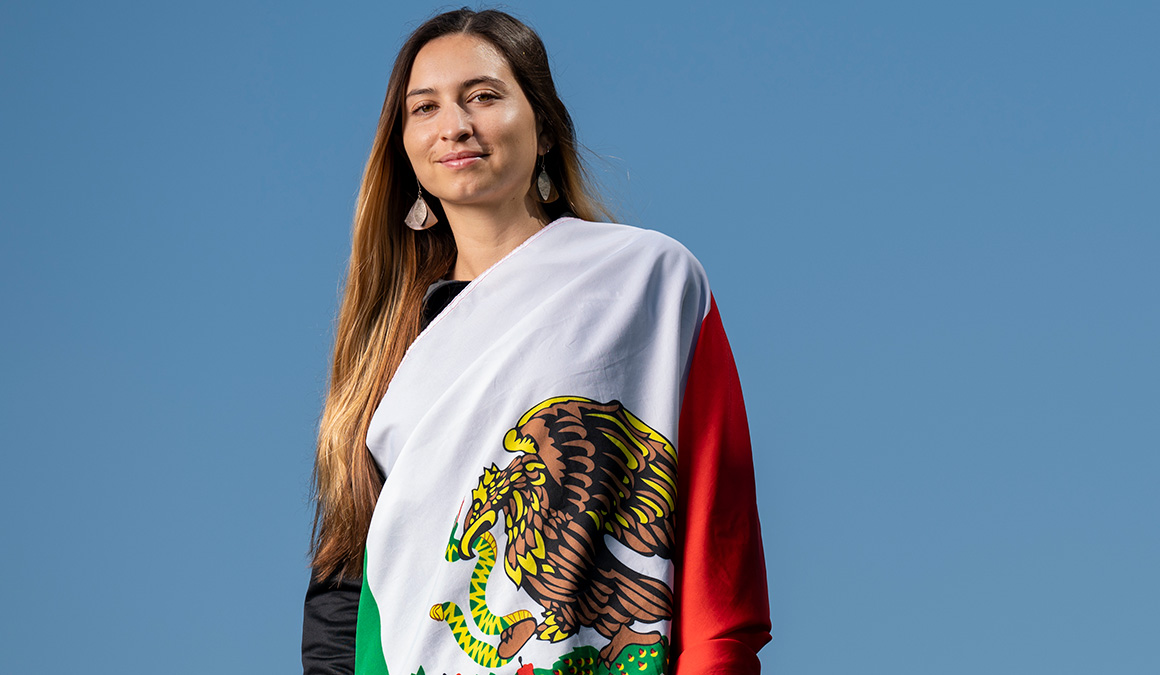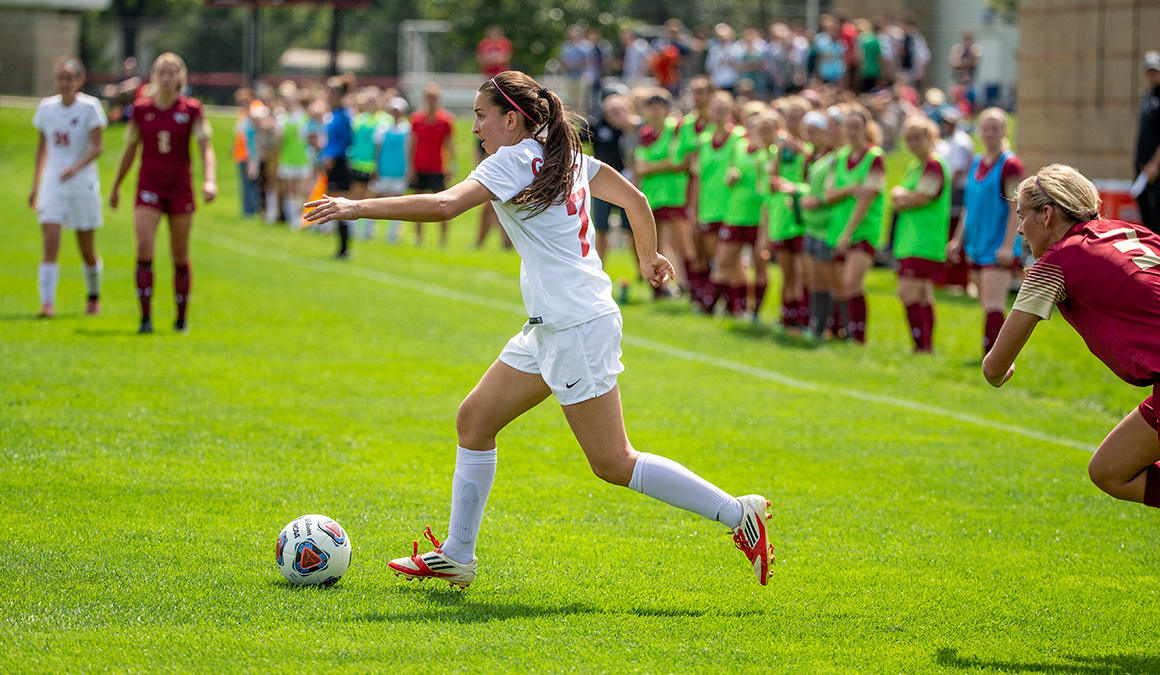Valencia Alvarez ’20
Global learning

Studying immigration and health care around the world opened Valencia Alvarez’s mind to a future in public health
For Valencia Alvarez ’20, the journey from her hometown of Yucaipa, California, to Grinnell was notable for several reasons. She was the first in her family to attend college, it was the first time she had traveled by plane, and Iowa was the farthest she’d ever been from home.
By the time Alvarez graduated, she was a Fulbright Scholar who’d visited more than a half dozen countries to study immigration and global health issues through the College’s Institute for Global Engagement (IGE).
“The Global Learning Program (GLP) was one of the most important experiences I’ve had at Grinnell,” Alvarez says about the semester-long course for first-year students. “We learned about education within migrant communities, talked to border patrol agents about security and policies, spoke to migrants about their experiences, and visited Greece and Germany at the height of the Syrian refugee crisis.”
That course, Crossing Borders: Migration in the 21st Century, also brought Alvarez and her first-year classmates to the southwest United States, Mexico, and Spain, to learn firsthand about immigrants and border issues.
 Valencia Alvarez ’20 poses in the Mexican flag.
Valencia Alvarez ’20 poses in the Mexican flag.
GLP courses explore specific themes about global issues and are interdisciplinary, so students learn from a pair of Grinnell faculty members from different areas of expertise. The GLP culminates with College-funded travel to allow for field-based learning in at least two countries.
Alvarez was a peer mentor for another GLP course, Global Health, during her second year at Grinnell. She attended classes and helped students with logistics and planning for travel to Cuba and Costa Rica over spring break and Denmark over the summer, where students learned about maternal health and health care for undocumented immigrants. In her third year, Alvarez studied in Chile, where she lived with a host family, observed health care in a low-resource hospital, volunteered with an immigrant organization tutoring children, and played soccer with several local teams.
“I played and practiced with the Universidad Católica team and found my skill levels fit perfectly,” says Alvarez, who played for Grinnell’s soccer team all four years and was also recruited for two pickup teams in Chile. “It was really fun. I also rode a motorcycle for the first time as a passenger!”
A biology major with a Latin American studies concentration, Alvarez came to Grinnell on a full QuestBridge scholarship. She originally planned to become a doctor — and may still do that in the future — but her experience studying global health changed those plans. “Seeing what you’re learning about in the real world definitely informed my career path and course selection. At Grinnell, I focused on the real life practice of what I was learning.”
 Valencia Alvarez ’20 prepares a cross during a soccer match while playing at Grinnell.
Valencia Alvarez ’20 prepares a cross during a soccer match while playing at Grinnell.
Prior to graduation, Alvarez was awarded a Fulbright ETA (English Teaching Assistant) scholarship, and a Stouffer Fellowship to finance graduate studies. She was supposed to start the Fulbright last year but the pandemic put those plans on hold. In the meantime, she has been living in Yucaipa and working at an after-school program, playing soccer, and interning at an immigration organization, where she translates documents, interviews asylum seekers, and helps in all aspects of the legal and social aspects of immigration.
“This whole year has been a whirlwind,” admits Alvarez. “I’ve learned that you can’t plan everything.”
In September she’ll travel to Mexico for the Fulbright — she doesn’t know where her assignment is yet — and help students learn English and focus on empowering girls through soccer. Once that’s completed, Alvarez will use the Stouffer to earn her master’s in public health, then hopes to work as a public health provider helping immigrant and vulnerable communities.
“As long as you’re able to open your mind to the world, you’re able to learn a lot about yourself and the world in the process,” she says. “The most important thing is to understand each other, and my global experiences with the Institute for Global Engagement have shown me how to talk to others I wouldn’t necessarily relate to initially. You really learn to understand one another.”
— by Anne Stein ’84